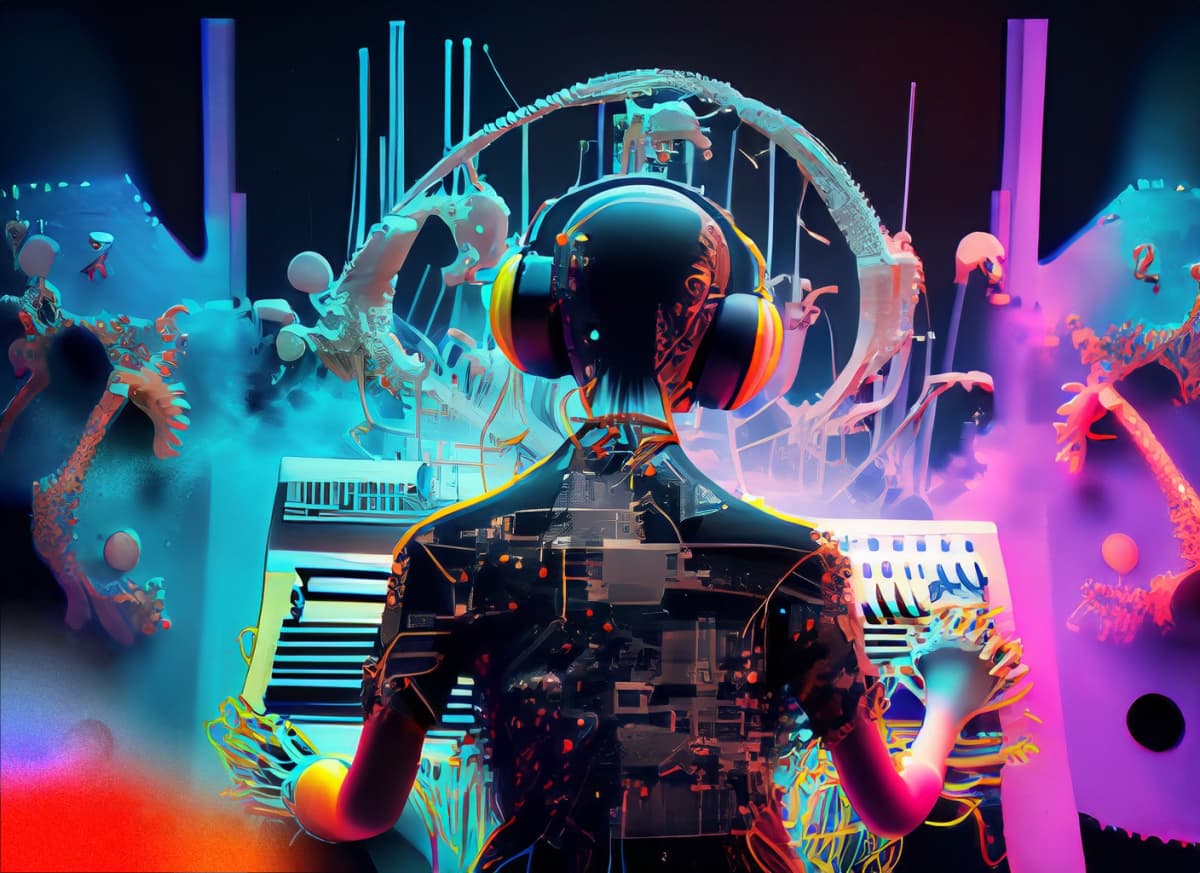
The rise of artificial intelligence (AI) has transformed almost every industry, and the music world is no exception. From composing symphonies to creating catchy beats, AI music generators have started to play a significant role in how music is produced today. But as these tools become more advanced, an important question arises: Can human creativity coexist with AI music generation? Let’s dive into this fascinating relationship, explore the challenges and opportunities it presents, and discover how artists can thrive in this new landscape.
The New Era: Humans and Machines Making Music Together
When people hear “AI music,” they often imagine robots taking over creative jobs. However, that’s far from the truth. AI isn’t replacing artists; it’s becoming a collaborator. Tools like Adobe Express AI music generator builds your brand by helping creators explore new ideas, offering beats, melodies, and soundscapes that might not have been conceived otherwise. Instead of seeing AI as a threat, musicians are learning to see it as a creative partner that can inspire fresh perspectives.
In fact, according to a 2024 study by Music Business Worldwide, over 58% of independent artists reported using AI tools for at least part of their music production. This growing trend suggests that AI isn’t stealing the creative process—it’s enhancing it.
How AI Enhances Human Creativity
One of the biggest advantages of AI in music is how it eliminates creative blocks. Whether you’re stuck on a chorus or unsure about a drum pattern, AI can offer options you might not have considered. Here’s how AI supports musicians rather than replacing them:
- Idea Generation: AI can rapidly produce variations on a melody or beat, sparking new ideas.
- Time Efficiency: Artists can spend more time refining and performing their music instead of getting bogged down in endless trial-and-error production.
- Genre Blending: AI effortlessly blends styles, helping musicians experiment across genres in ways they might not naturally think to do.
Think of AI as a brainstorming buddy—one that never gets tired or runs out of ideas.
Where Human Creativity Still Reigns Supreme
Despite its capabilities, AI lacks one vital ingredient: emotional authenticity. Music is deeply human—it expresses heartbreak, joy, anger, and dreams. While AI can mimic patterns based on data, it doesn’t truly “feel” anything. That’s where human creativity remains irreplaceable.
Musicians bring personal experience, cultural context, and emotional storytelling that cannot be replicated by an algorithm. An AI might be able to compose a technically perfect song, but it’s the human touch that transforms a collection of notes into a soul-stirring anthem.
Key Areas Where Humans Lead:
- Lyrics: True storytelling through words needs empathy and life experience.
- Performance: Emotional delivery—vocal inflections, dynamic intensity, improvisation—still belongs firmly in the human domain.
- Connection: Audience engagement often depends on the personal narratives and real emotions artists share.
Actionable Insights: How to Collaborate with AI Music Tools
If you’re an artist wondering how to balance AI tools with your own creativity, here are some practical tips:
- Start with a Creative Goal: Know what you want to express before diving into AI-generated ideas. Let the machine serve your vision—not the other way around.
- Use AI for Exploration, Not Finalization: Treat AI outputs as drafts or inspirations, not finished products. Add your human touch to elevate the piece.
- Personalize the AI Output: Always reinterpret or modify what the AI provides to make it uniquely yours. Blend its suggestions with your own artistry.
- Focus on Emotional Connection: Prioritize emotional depth over technical perfection. Audiences remember feelings more than flawless beats.
The Future: A Harmonious Collaboration
Looking ahead, it’s clear that human creativity and AI music generation can coexist—and even flourish together. Rather than fearing AI’s growing role, artists can embrace it as another tool in their creative arsenal. Just as musicians once adapted to electric guitars, synthesizers, and digital recording, they can now integrate AI into their artistic processes without losing their essence.
Ultimately, the soul of music will always be human. AI can help shape sounds, but the heart behind the music remains ours.
